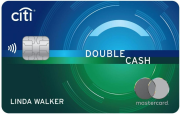The content on this page is accurate as of the posting date; however, some of the offers mentioned may have expired.

Credit cards are everywhere. Chances are that most everyone you know has at least one of their own, if not more. There are so many different offers swirling about, how on earth is it possible to pick one?
Selecting a credit card to apply for is not an “eeny-meeny-miney-mo” situation; consideration and care should be exercised when deciding exactly which kind of plastic to tuck into your wallet.
First things first.
The very first order of business is to figure out what type of credit card user you are. According to a documentary which aired on FRONTLINE a few years back, banks lump credit card users into one of two categories: “revolvers” or “deadbeats.” A revolver is someone who typically carries a balance from one billing cycle into the next, accruing interest on their outstanding balances. A revolver is more profitable for the credit card company because they pay additional fees and interest charges, and thus are desirable customers for banks. Deadbeats are the people who pay off the entirety of their balances each and every month. They rarely accrue additional interest charges or fees. Banks don’t stand a chance of profiting much from these types of customers, hence the name: deadbeats. Which category you fall into is the most important factor on which to base your decision when picking a credit card to apply for.
Cards to consider if you are a revolver:
If you are someone who carries a balance from month to month, your ultimate goal should really be to pay off your debt as quickly as possible. In order to do this, you should seek out a card with the lowest interest rates that you can find. Low APR cards can come in several forms – a zero or super low promotional rate that only lasts for a specified period of time, a nice competitive standard rate or, ideally, both.
Special promotional interest rate periods can last anywhere from six to 21 months, depending on the offer. The promo rate may be applied to balance transfers, new charges or both. For balance transfer cards, there is almost always a balance transfer fee involved – generally between 3 and 5 % of the total amount being transferred – so this should be taken into account when figuring out whether or not transferring a balance from one card to another will save you money.
The catch, if you want to call it that, with credit cards that offer the lowest interest rates is that they almost never come with any sort of rewards program. However, if you are a revolver you really shouldn’t be concerned about earning rewards. You should instead be focused on paying off your outstanding balance as fast and as cheaply as possible. Also be sure to look for a card with no annual fee.
Cards to consider if you are a deadbeat:
This may be the one and only time being called a deadbeat is an extremely positive thing. Because you are disciplined enough to pay down your balance every month, you should look into applying for a rewards credit card and take advantage of some of the extra perks many credit card issuers have to offer.
There are tons of different rewards credit cards available to choose from – miles or travel rewards, cash back, miscellaneous points that can be redeemed for various goods and services – no matter which one you pick, make sure you find one that affords you the greatest value. Some of these types of cards come with annual fees attached, so take that into consideration too when you are making your decision. It might be worth it to pay a fee each year if the card offers you some truly exceptional rewards.
You may, in fact, receive a bonus for opening one of these rewards accounts. Often these bonuses require that a minimum spending requirement be met in order for you to be eligible to receive the additional perks, so just make certain that you can comfortably meet it without overextending yourself by overspending. No rewards program is worth spending extra money just to get perks.







